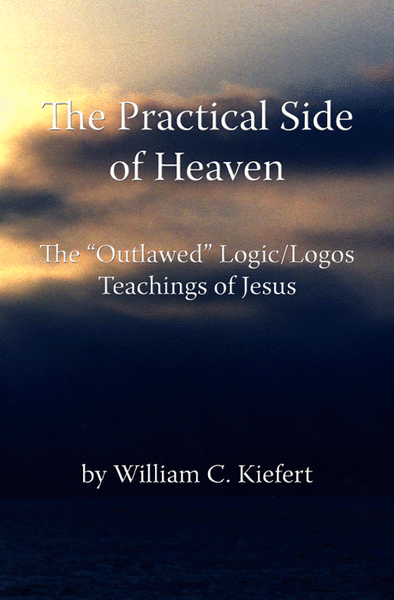
Learn more about The Practical Side of Heaven
Copyright William C. Kiefert. All Rights Reserved.
Chapter Two, Part Three: Where Does Logic Come From?
Logic, as we now know it, is unfinished. Traditional logic is well suited to science, but not humanity. Three centuries before Christ, the Greek philosopher Aristotle (384-322 BC) and the Indian philosopher Gautama formalized systems of logic that, before them, were taken for granted as logical ways to relate ideas. To this day, we use those systems of logic as standards for correctly relating ideas/reasoning. Whether we are aware of them or not, like laws of grammar that act as standards of communicating, Aristotle’s and Gautama’s laws of logic act as standards of what is considered reasonable and what is not—globally. But what is reasonable is not always moral in every situation.
“Since Aristotle, the western world has followed the logical principles of Aristotelian philosophy” as outlined in his book The Organon. A similar system of logical laws in the East is the “Nyaya System” of the third century BC. Nyaya means “a way of leading the mind to a conclusion.” Its most famous text is the “Nyaya sutra ascribed without surety to Gautama… His achievement was to give India an organon of investigation and thought…. Gautama is the Aristotle of India.”
Aristotle’s and Gautama’s logic divides the world into classes of opposites and contradictories. This logic works fine for computers and mathematics and Newtonian science. But it is a failure when it comes to enabling us to resolve disputes between fellow human beings. We do not have a logic which encompasses, in circumstances where we come into conflict with one another, opposite views. We need such a logic! In fact, we have always needed such a logic, which employs categories of both/and to express our deepest feelings and the most profound truths of our philosophies, our theologies, and now even our sciences. We need both traditional logic and a both/and system of logic.
Christians, for example, believe that Jesus is both man and God. Religious believers, generally, believe that God is both immanent in the world and also transcendent beyond it, both eternal but capable of acting in historical time, both omnipotent and yet permitting us free will to go against His will, both omniscient but leaving open a future which He does not know or determine, both in Heaven and yet nearer to us than our own soul! The either/or categories of Aristotelian logic make such statements contradictory and literally nonsense. Indeed, some Twentieth Century philosophers have claimed that any such “metaphysical” claims are “cognitively meaningless and factually nonsensical.” But these claims are precisely what religious believers, from virtually every tradition, wish to maintain as true. It is clear that Aristotelian logic is incapable of making logical or rational sense out of such claims. That logic and reasoning stand in apparent opposition to “truths” of the heart and the soul.
